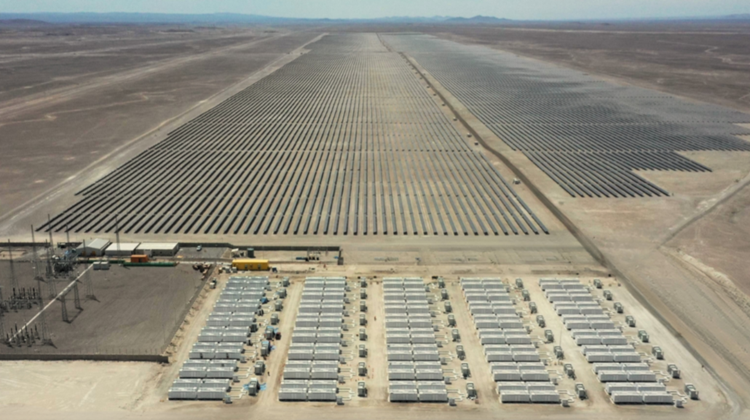The United Kingdom has taken a decisive step towards consolidating its leadership in the global clean energy sector with a 300 million pound strategic investment aimed at expanding domestic offshore wind supply chains. Announced by Prime Minister Keir Starmer, this initiative is designed to attract substantial international capital, bolster energy security, and accelerate progress towards the country’s ambitious target of delivering clean power by 2030.
The funding, channelled through Great British Energy, the state-owned clean energy company, marks the first phase of a broader industrial strategy. This approach not only addresses the immediate need for resilient supply chains but also seeks to mobilise billions in additional private investment, ensuring long-term economic growth and technological leadership.
“Delivering the Plan for Change means winning the race for clean energy jobs that will power Britain’s future economy,” declares Starmer. “By investing in our offshore wind supply chains, we are strengthening national security, supporting skilled employment, and positioning the UK at the forefront of the global energy transition.”
The investment complements the £43.7 billion in private sector commitments announced since July, reflecting strong market confidence in the UK’s clean energy agenda.
Grid connection reforms: Unlocking investment and accelerating clean energy deployment
Recognising that infrastructure bottlenecks threaten to delay critical projects, the Government has also unveiled comprehensive reforms to the electricity grid connection process. Developed in partnership with Ofgem and the National Energy System Operator (NESO), these measures will prioritise shovel-ready clean energy projects, eliminate outdated “zombie projects“, and significantly reduce connection waiting times, which currently extend up to 15 years for some companies.
Energy Secretary Ed Miliband emphasises the urgency of these reforms: “Too many businesses are gridlocked, unable to access the clean energy they need to innovate, grow, and create jobs. Our changes will fast-track connections for high-impact projects, ensuring that Britain’s energy system supports economic resilience and security.”
By streamlining procedures and focusing on strategic priorities, the reforms are expected to unlock £40 billion annually in predominantly private investment across renewable energy and infrastructure sectors. This will not only drive job creation in engineering, construction, and advanced manufacturing but also reduce consumer costs by avoiding unnecessary grid upgrades, saving an estimated £5 billion.
Jonathan Brearley, CEO of Ofgem, describes the initiative as a catalyst that will “supercharge Britain’s clean power ambitions, cutting bureaucracy and accelerating the deployment of homegrown renewable energy.”
Great British Energy: Driving domestic growth and energy independence
At the heart of this strategy is Great British Energy, established to ensure that the economic benefits of the clean energy revolution are retained within the UK. Acting as both investor and coordinator, the company will focus on developing local supply chains for critical offshore wind components such as floating platforms, foundations, cables, and advanced turbine technologies.
“We will work closely with industry partners to deploy funding rapidly and get projects off the ground,” says Dan McGrail, Interim CEO of Great British Energy. This collaborative model is intended to de-risk private investment while fostering innovation and industrial capacity.
According to Jane Cooper, Deputy CEO of RenewableUK, the combined effect of public investment and policy reform could “triple the UK’s manufacturing capacity over the next decade, adding £25 billion to the economy and creating over 10,000 new supply chain jobs.”
A coordinated response to global energy challenges
In an era marked by geopolitical instability and volatile fossil fuel markets, the UK’s proactive stance sends a clear message to investors worldwide. “If you seek certainty, stability, and security for your clean energy investments, choose Britain,” asserts Miliband, reinforcing the country’s ambition to be a safe haven for green capital.
The recent Future of Energy Security Summit in London, hosted alongside the International Energy Agency, underscored the urgency of collaborative action to mitigate future energy shocks. Leaders from across the globe, including European Commission President Ursula von der Leyen, convened to address the dual challenges of accelerating the energy transition while safeguarding economic stability.
Richard Sandford, Chair of the Offshore Wind Industry Council, highlights that “this funding and reform package translates ambition into concrete action, paving the way for deeper partnerships between government and industry.”
Building a sustainable and resilient energy future
With this integrated approach—combining targeted investment, structural reforms, and public-private collaboration—the UK is not only advancing its decarbonisation goals but also laying the foundation for a resilient, self-sufficient energy system.
“Let the world hear this: Build the clean energy future in Britain,” concludes Prime Minister Starmer. The message is unequivocal—the UK is open for business, ready to lead, and determined to ensure that the green transition delivers lasting prosperity for its people.



























